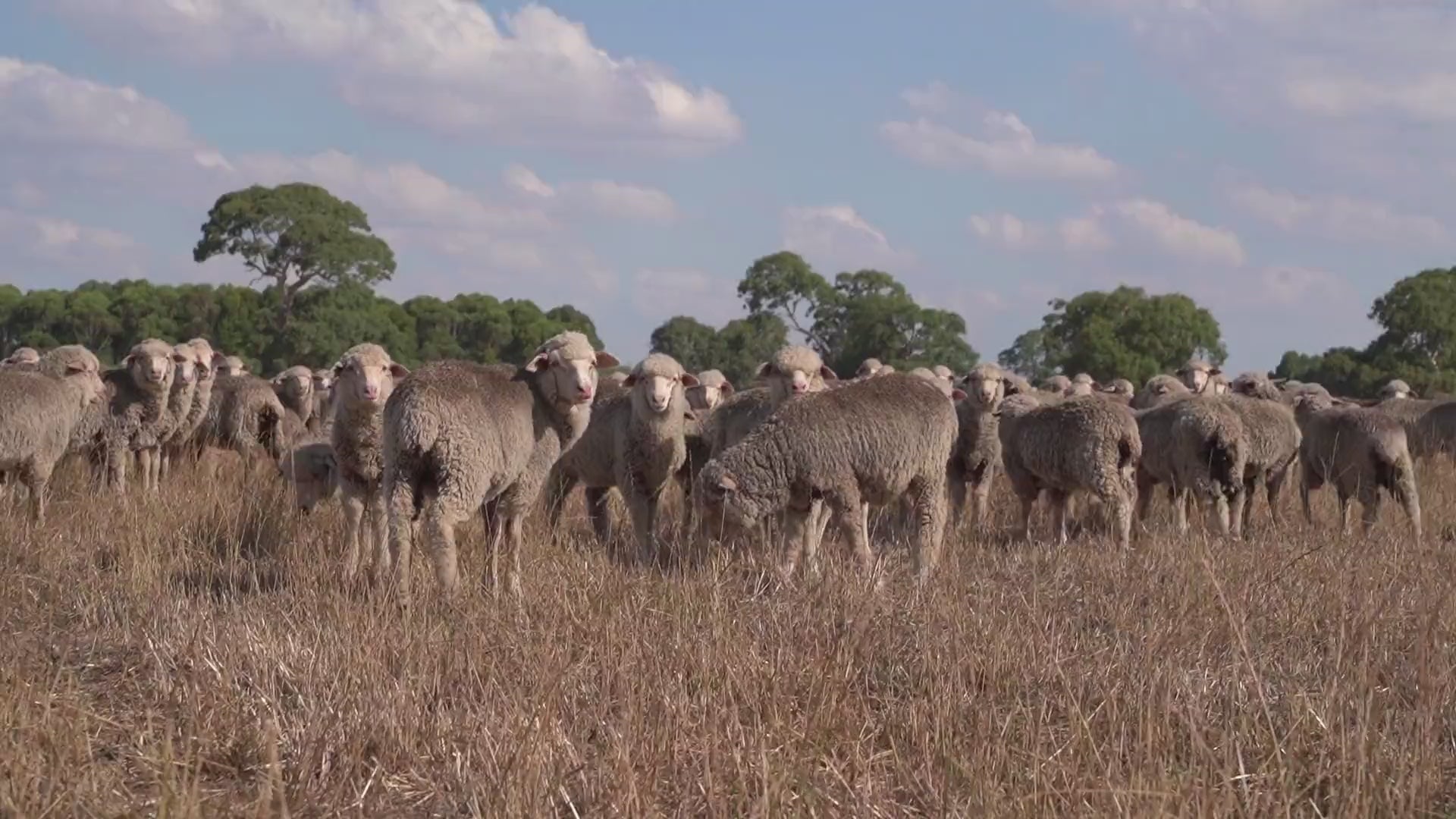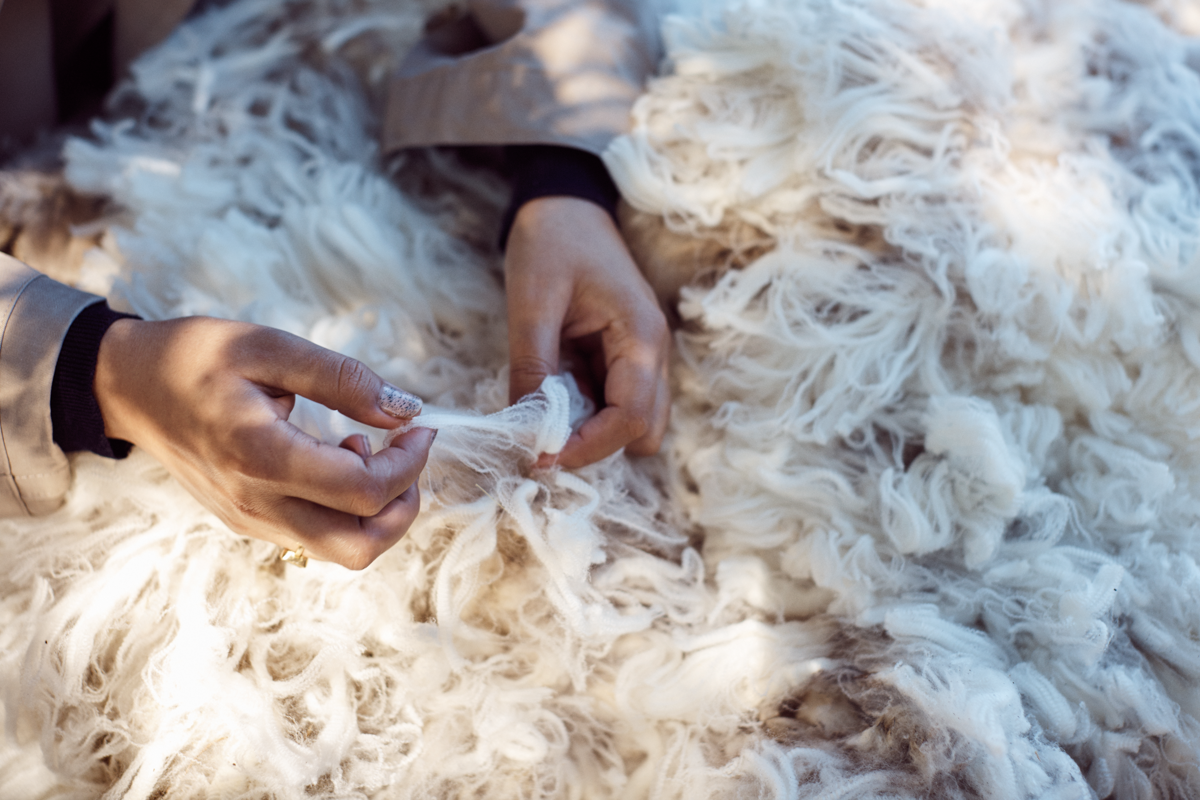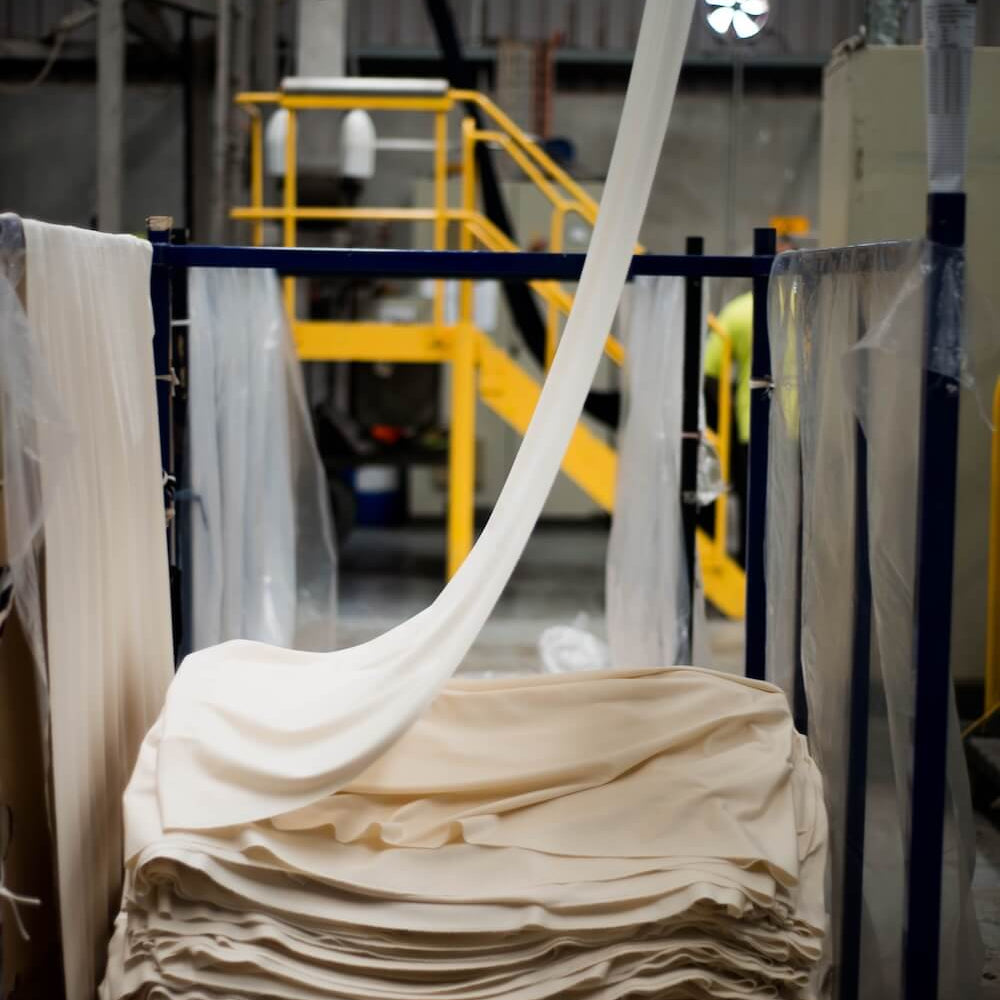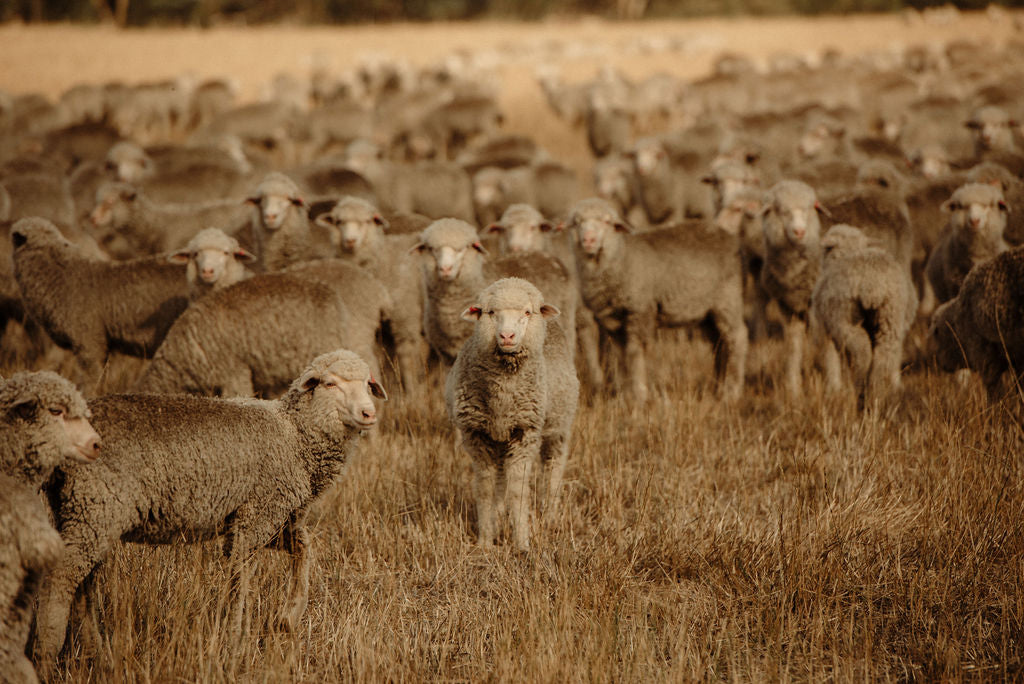
Why Merino Wool
Sourced from sheep raised on high-quality Australian pastures, Merino wool is celebrated for its exceptional softness, natural warmth, and breathable, moisture-wicking properties. It’s a versatile fiber that keeps you comfortable in every season—light enough for warmer days, and cozy enough for cooler ones.
WHY WE LOVE MERINO
A Natural Fiber You Can Feel Good About
Here’s why it’s the fiber we trust for the whole family:

Temperature Regulating
Merino wool helps regulate body temperature by keeping you warm when it’s cold and cool when it’s hot. It does this because the wool can trap tiny pockets of air, which act like insulation to keep warmth close to your body in the cold. In hot weather, Merino wool absorbs sweat and allows it to evaporate, which helps cool you down. Because of this, Merino wool naturally adjusts to the temperature, keeping you comfortable no matter the weather.

Incredibly Soft
Merino wool is soft because of the finer structure of its fibers compared to regular wool. The fibers are much thinner, typically around 18-24 microns in diameter, which makes them smooth against the skin. The natural crimp in Merino wool fibers also creates tiny air pockets that enhance its softness and insulation properties. Additionally, the fibers are less prickly and coarse than those of traditional wool, making Merino wool comfortable to wear directly on the skin without itching or irritation.

Machine Washable
The fibers have a natural crimp, which helps them maintain their shape and strength even after washing. Additionally, Merino wool has a smooth surface, which reduces the likelihood of it shrinking or felting when washed. Many Merino wool garments are treated with special finishes that make them extra resilient to washing, ensuring they stay soft and in good condition. However, to keep Merino wool in the best shape, it's often recommended to wash it on a gentle cycle with cool water and use a wool-friendly detergent.

Hypoallergenic
Merino wool has natural moisture-wicking and antimicrobial properties, which help to reduce the buildup of allergens like dust mites and bacteria. The breathable nature of Merino wool also helps regulate body temperature, preventing excessive sweating, which can contribute to irritation or allergic reactions. As a result, Merino wool is a comfortable, allergy-friendly alternative for many people with sensitivities.

Wicks Away Moisture
Merino wool helps keep you dry because it can soak up sweat without you feeling wet. The tiny wool fibers pull the moisture away from your skin and hold it inside. Even though it absorbs sweat, the wool still feels dry on the outside. This helps keep you cool when it’s hot and warm when it’s cold, because it stops you from getting too sweaty or chilly.

Naturally Fire Resistant
Merino wool is naturally fire-resistant because of its chemical structure and the presence of keratin. It tends to smolder rather than ignite, and its moisture-wicking properties help further reduce the risk of catching fire. Unlike synthetic fibers, Merino wool doesn’t melt or stick to the skin when exposed to heat, making it a safer option in high-heat environments.

Durable
Merino wool is durable because its fine, strong fibers are naturally elastic, allowing them to bend without breaking. It resists wear, wrinkles, dirt, and odors, and retains its shape even after stretching. Its moisture-wicking and antimicrobial properties also help it last longer, making it a strong and reliable fabric.

Biodegradable
Merino wool is fully biodegradable, breaking down naturally in soil within 12 months. To compost it properly, simply remove any tags, thread, or elastic, cut the wool into small pieces, and bury it in your garden or compost bin—where it will return nutrients to the earth and complete its full-circle journey.
Microns + GSM
Understanding Wool Quality

Microns
This is a measure of the thickness of each individual wool fiber. The lower the micron count, the finer and softer the wool feels. For reference, human hair is typically around 60–100 microns thick. Our Merino wool falls between 17–19 microns—ultra-fine and soft enough for even the most delicate newborn skin. A lower micron count also means less itch and more comfort, making it ideal for everyday wear.

GSM
Standing for grams per square meter, GSM tells you the weight—and warmth—of a fabric. A lightweight wool sits around 150–200 GSM, offering breathable comfort for layering year-round. Higher GSM fabrics (like 250 and up) are thicker and warmer, perfect for cooler temperatures. We choose GSM weights that balance softness, warmth, and breathability, so your little one stays cozy without overheating.

ETHICALLY SOURCED
Always Non-Mulesed
Our Merino wool comes from sheep raised on high-quality pastures in Australia, where animal welfare matters. We use non-mulesed wool, meaning sheep are never subjected to the mulesing practice—instead, farmers rely on humane methods to prevent flystrike and care for their flocks responsibly.
MERINO MADE SIMPLE
Your Wool Questions, Answered
What is Merino wool and how is it different from regular wool?
What is Merino wool and how is it different from regular wool?
Merino wool comes from Merino sheep and is known for its incredibly fine fibers, making it much softer and smoother than traditional wool. It’s naturally breathable, temperature-regulating, and itch-free—perfect for everyday comfort.
Is Merino wool safe for sensitive skin and babies?
Is Merino wool safe for sensitive skin and babies?
Yes! Our ultra-fine Merino wool is gentle enough for even the most delicate newborn skin. Its smooth fibers won’t irritate or itch, making it a favourite for babies, kids, and anyone with sensitive skin.
What does the micron count mean in Merino wool?
What does the micron count mean in Merino wool?
Microns measure the thickness of each wool fiber—the lower the number, the softer the feel. Our Merino wool ranges from 17–19 microns, making it incredibly soft, breathable, and ideal for layering without bulk or irritation.
What is GSM and how does it affect Merino wool clothing?
What is GSM and how does it affect Merino wool clothing?
GSM (grams per square meter) measures fabric weight. Lightweight Merino (around 150–200 GSM) is perfect for everyday wear and layering, while higher GSM fabrics (250+) offer cozy warmth for cooler days.
What does non-mulesed wool mean, and why does it matter?
What does non-mulesed wool mean, and why does it matter?
Non-mulesed wool comes from farms that do not use the painful mulesing practice on sheep. We choose non-mulesed wool to support ethical, humane farming and ensure every piece is made with care and compassion.
Where does Simply Merino source its wool?
Where does Simply Merino source its wool?
We source our wool from trusted Australian farms that meet high standards for animal welfare and land care, including those certified under the Responsible Wool Standard (RWS). Every piece is made with purpose—from farm to finish.
How should I wash and care for Merino wool?
How should I wash and care for Merino wool?
Merino wool is naturally odor-resistant and easy to care for. Always wash your wool on a delicate cycle with a gentle detergent. Never use bleach.
Does Merino wool shrink in the wash?
Does Merino wool shrink in the wash?
Our Merino wool resists shrinking better than traditional wool, thanks to its smooth fibers and durable weave. To keep it in its best shape, we recommend gentle washing and air drying.
Is Merino wool breathable and good for year-round wear?
Is Merino wool breathable and good for year-round wear?
Absolutely. Merino wool helps regulate body temperature—keeping you warm in winter and cool in summer. It’s breathable, moisture-wicking, and perfect for layering in every season.
Is Merino wool eco-friendly?
Is Merino wool eco-friendly?
Yes! Merino wool is 100% natural, renewable, and biodegradable. It breaks down in nature and returns nutrients to the soil—making it a smart choice for both comfort and the planet.
Do moths really eat wool?
Do moths really eat wool?
Moth and other bugs do like to nibble on most natural fibers, wool included. If you suspect you have moths, we recommend washing your wool, air dry, then freeze to kill any eggs that may be present. Storing your wool properly will prevent damage from bugs.
How should I store my wool?
How should I store my wool?
If you are not wearing your wool regularly, we recommend storing it in a cedar chest or in a sealed Ziploc bag.






